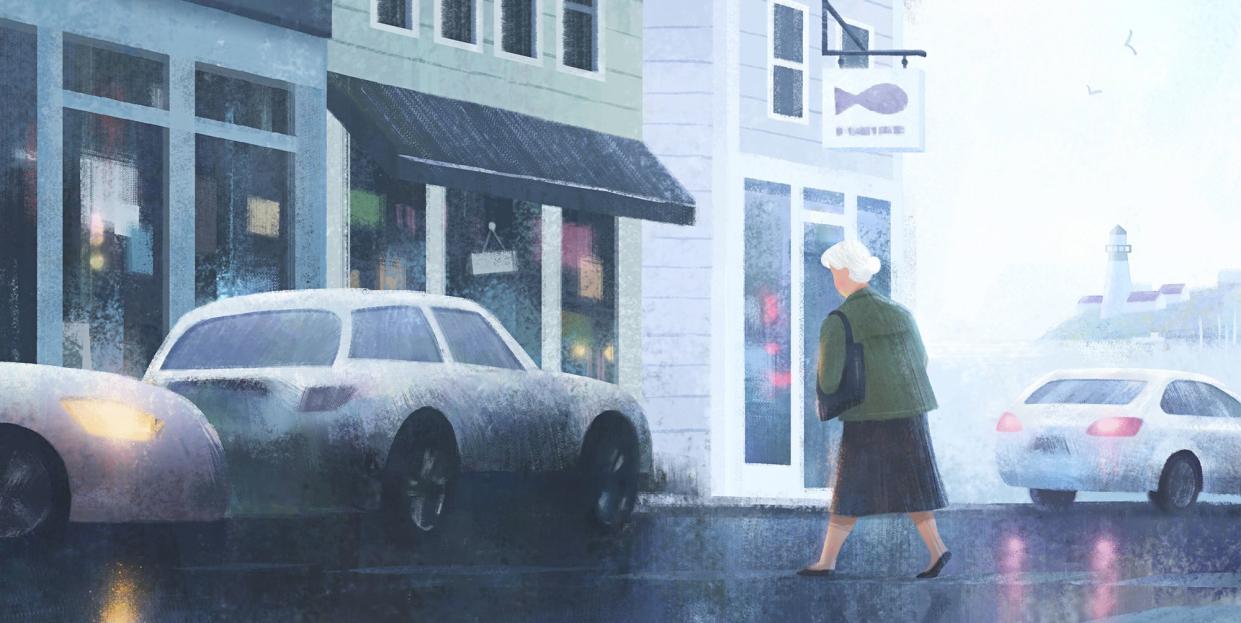Joyce Carol Oates Reviews Elizabeth Strout's Olive, Again

This week, Oprah announced her latest Book Club pick with Apple: Olive, Again by Elizabeth Strout.
In the December issue of O, best-selling author Joyce Carol Oates shared her review of the book—the 82nd-ever selection in Oprah's Book Club.
“Olive Kitteridge. Like kissing a barnacle-covered whale.”
Few writers would dare to characterize their heroines in such bluntly unsentimental terms, the more startling in that this unromantic remark is made by 74-year-old widower Jack, who is attracted to Olive and hopes to marry her.
Indeed, in Oprah's latest book club pick Olive, Again—the sequel to Strout’s Pulitzer Prize-winning Olive Kitteridge—Olive is now a much older woman, though still with a fiercely intransigent nature that is both cantankerous and kindly. We wince at Olive’s rudeness at times; probably, we would not want to be a relative of hers, risking her sharp tongue. Yet that abrasiveness is conjoined with integrity and compassion.
Olive, Again is a modestly self-effacing title for these 13 vividly realized interlocking tales shaped into a novel in the mode of Sherwood Anderson’s classic Winesburg, Ohio and Alice Munro’s The Beggar Maid, exploring the claustrophobia and loneliness of small-town life. Olive is the protagonist in some stories and a background presence in others, providing moral support and sympathy for girls and women who find themselves emotionally isolated.
In both Olive novels, Strout has created a wonderfully eccentric Mainer who verges, like most eccentrics, on self-parody, yet emerges finally as endearing, even beloved. In one of the more comic chapters, Olive reveals herself to be a reluctant grandmother who fails to provide proper food for visiting grandchildren and can’t strike the right note with her daughter-in-law; as a mother she frets that her adult son, Christopher, doesn’t seem to love her while she behaves coldly toward him and dislikes his stepchildren.
Yet Olive struggles to figure herself out, and has an urgent need for a summing up: “But it was almost over, after all, her life. It swelled behind her like a sardine fishing net, all sorts of useless seaweed and broken bits of shells and the tiny, shining fish...the billion streaks of emotion she’d had as she’d looked at sunrises, sunsets...All of it gone, or about to go.”
Toward the end of the book, Olive feels a compulsion to acquire a typewriter and write—as if emulating her creator. She has demonstrated virtually no intellectual, cultural, or literary interests until now (unusual in an educated person who’d been an educator), but suddenly Olive is suffused with a need to express herself. Among the things she types is: “I do not have a clue who I have been. Truthfully, I do not understand a thing.”
It’s a paradox that Strout’s many admiring readers will grasp intuitively: Though we may not “know” who we are, we can come to an appreciation of ourselves that bypasses knowledge, through our relationships with others.
For more ways to live your best life plus all things Oprah, sign up for our newsletter!

